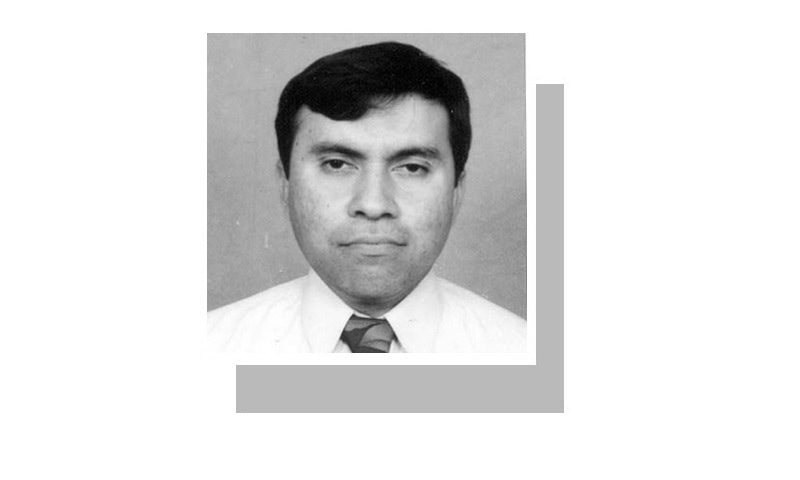
THE Sindh administration is negotiating with a Chinese enterprise for a waste-to-energy unit that could generate about 200 megawatts of electricity at one of Karachi’s landfills. Given the fact that 88 per cent of residents believe cleanliness is the city’s biggest problem, this move may appear positive. But much more is needed from the administration and whatever is left of the local government to manage the city’s mounting waste issue.
With a rise in consumerism and changing lifestyles and production processes, waste generation has become fairly diversified. Proliferating private healthcare facilities generate hazardous medical waste. Growing use of gadgets has given rise to electronic waste. Rubber, plastic, paper, industrial and biological waste of different volumes and characteristics is a natural outcome. Typical municipal waste is hardly ever removed, and new forms of waste generation are virtually unattended to.
As a result, epidemics such as chikungunya have recently spread across the metropolis. Folks in suburban areas continue to experience bouts of viral and bacterial diseases. The lack of proper waste management is obviously a key factor in these crises. This amounts to a human crisis that should be addressed holistically.
The lack of solid waste management has reached crisis proportions.
The situation of solid waste management (SWM) is grave. Districts east and south are managed by a Chinese contractor under the Sindh Solid Waste Management Board (SSWMB), while the remaining four are under the District Municipal Corporation (DMCs), which possess negligible capacity and financial strength. The Karachi Metropolitan Corporation (KMC) is assigned to look after the two garbage sites at Jam Chakro near Surjani Town and Govind Pass near Hub. Household garbage collection, street cleaning and transferring waste to secondary collection points is assigned to union council administrations.
But observations show that this arrangement is not working. At the union council level, it was found that sanitary workers were mostly involved in private work. Absence of basic equipment, supervisory staff and designated collection points were key issues. While DMCs complain of the lack of vehicles, staff and funds, a Supreme Court order states that the total staff strength of the six DMCs is 10,392 with a total salary of over Rs540 million per year. KMC has also not developed the two existing garbage sites into sanitary landfills with proper specifications.
Research has shown that recycling is an established enterprise, organised and managed at an informal scale. Street scavengers, waste-pickers, collectors/ contractors, recycling plant operators and recycled goods buyers are key actors in this process. Paper, glass, metal, rubber, clothing, dried bread, bones and used cans are the main articles that feed into the recycling stream, generating livelihoods for an estimated 65,000 households. It also helps to reduce un-removed waste in neighbourhoods. But due to its informal nature, limits on expansion and threats from state institutions, this enterprise is operating below its potential.
Private SWM operators have been contracted previously, with disappointing results. The SSWMB was severely criticised by the Supreme Court in its order. It observed that more than Rs46,000 per truck, per trip is spent in foreign exchange through the Chinese contractor, with negligible impact. Nor has a scientific garbage transfer station been established in the city. The court went so far as to recommend the SSWMB’s closure due to its dismal performance.
Due to its peculiar nature of service, waste management is a restricted occupation as far as primary collection, street sweeping and nullah maintenance is considered. Many local Hindu, Christian and scheduled castes families have been involved in this trade for generations, and many Afghans have also joined this work, albeit in informal enterprises. Over time, the sociological strength of this community has improved considerably. They act as a strong lobby to safeguard their livelihoods. It is, however, vital to consider that if offered to properly participate, they can be motivated to improve productivity. Their performance potential has been analysed in depth since the 1990s; these reports are still relevant.
Some SWM steps must be launched without delay. The Sindh administration must evolve a working relationship with KMC, take stock of the situation, set priorities and devise a monitoring mechanism. Rapid institutional changes have dispersed SWM-related staff to a great extent. From coolies to engineers, a rigorous exercise must be undertaken to reorganise and retrain staff cadres.
Public-private partnership options can be explored for specialised domains such as hospital waste management. Such attempts must essentially involve local private entrepreneurs in a bid for capacity building. A Karachi that is full of filth may not be a good omen for those who aspire to win the upcoming elections.
The writer is a professor and acting dean, Faculty of Architecture and Management Sciences, NED University, Karachi.
Published in Dawn, January 14th, 2018









































